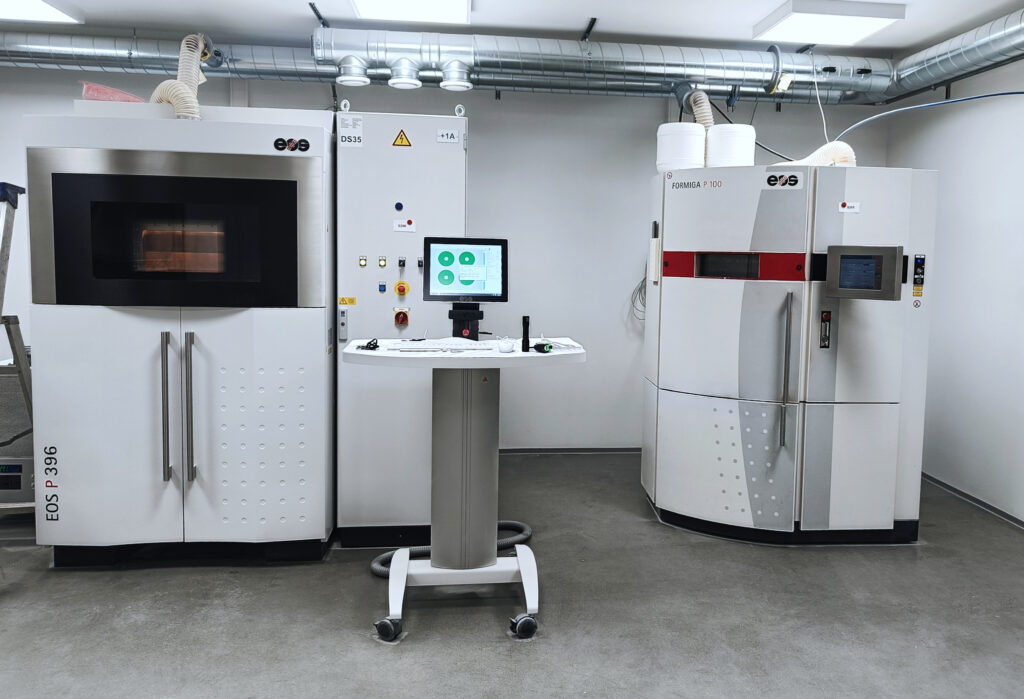For Weeefiner, 3D printing is not just an alternative manufacturing method – it is the very core of the technology. The production of the 4D Scavenger® technology relies on EOS equipment, which enables precise customization of process parameters and scaling to an industrial level.
Recovering valuable raw materials is not only a technological challenge but also an environmental obligation. Weeefiner addresses this challenge with the 4D Scavenger® technology, which makes it possible to recover dissolved critical materials from industrial wastewater. The technology is based on 3D-printed, chemically active polymer filters that pave the way toward a sustainable and profitable industrial future.
Additive manufacturing has, from the very beginning, been the most suitable solution for producing 4D Scavengers, as it allows for precise tailoring of both physical and chemical properties, delivering unprecedented performance in water treatment and material recovery. Advanced manufacturing technology scales to the needs of heavy industry while enabling tailored solutions on demand without unnecessary waste.
At the end of last year, Weeefiner invested in a new industrial-scale 3D printer as part of scaling its production process. The EOS P 365 system was chosen for its reliability and scalability. The greatest advantage of EOS 3D printing technology is its adaptability: it enables the chemical functionality and porous structure that form the core of the 4D Scavenger. The process allows fine-tuning of parameters as well as recoating and laser exposure settings, which are essential for the functionality of the 4D Scavenger®.

Photo from Weeefiner’s production facilities.
Up to 86% lower CO₂ emissions with recycled material
Sustainability is a core part of Weeefiner’s business strategy. In addition to building our business on circular economy principles, we also strive to optimize our own production processes accordingly. In collaboration with Formtech, we have started using surplus materials in our production. Waste material that would normally be classified as scrap fully meets the requirements of our process and can be used to replace new material by up to 100%.
Using recycled material significantly reduces the environmental impact of production, as material consumption is the main contributor to manufacturing’s carbon footprint. According to calculations carried out with EOS, producing eight 4D Scavengers in 22 hours using green energy and recycled powder reduces CO₂ emissions by 86%, with the global warming potential being less than 2 kg CO₂ eq. per part. This saving is roughly equivalent to driving about 740 km by car or 6.5 hours of air travel per person.
Read more about the manufacturing technology used by Weeefiner on the EOS blog.
